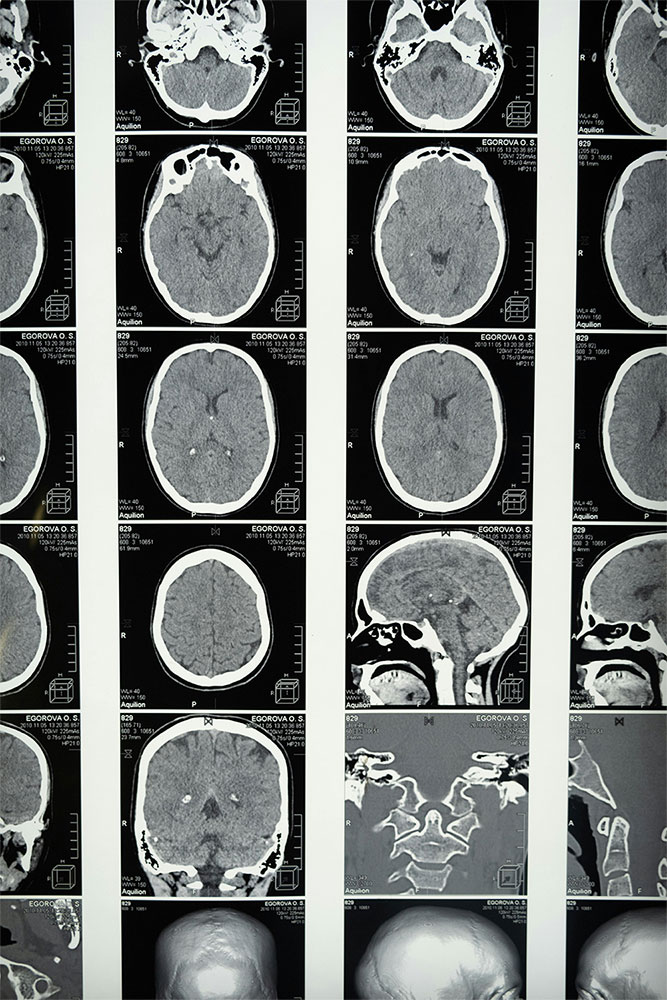Exploring the intricacies of cognitive impairment involves navigating through various stages, each with its own unique challenges and considerations. From the initial diagnosis to the progressive management of symptoms, understanding the levels of cognitive impairment is paramount. This article touches on the four distinct levels, offering insights into evaluation techniques and effective management strategies. Whether you’re seeking clarity on dementia stages or aiming to enhance your caregiving approach, this exploration promises to illuminate the journey through cognitive impairment with clarity and empathy.

Christopher Ravn
Key Takeaways
1. Recognizing the spectrum from normal cognition to severe impairment helps in early detection and intervention, crucial for managing conditions like Alzheimer’s.
2. Utilizing assessments like MMSE, MoCA, and CDR alongside neuroimaging techniques aids in accurate diagnosis and treatment planning, facilitating tailored care.
3. Collaborative efforts involving healthcare professionals and customized treatment plans enhance the quality of life for individuals with cognitive impairment, offering support for both patients and caregivers.
Table of Contents
1. Levels Of Cognitive Impairment
2. What Are The Four Levels Of Cognitive Impairment?
3. How To Determine The Level Of Cognitive Impairment
4. How Fast Do 4 Levels Of Cognitive Impairment Progress?
5. What Are The Best Treatments To Alleviate Symptoms?
6. What Is The Difference Between Mild Cognitive Impairment And Dementia?
7. Frequently Asked Questions About Levels Of Cognitive Impairment
Levels Of Cognitive Impairment
Cognitive impairment is the rate of decline in a person’s cognitive function. This includes functions such as memory, attention, language, and problem-solving skills that are part of everyday functioning. Hence, it is important to understand that cognitive impairment is crucial when evaluating brain health and diagnosing conditions such as Alzheimer’s and dementia.
When it comes to levels of cognitive impairment, it is important to understand that there are many levels ranging from mild to severe. Mild cognitive impairment (MCI) occurs on a minor scale when a person enters their elderly age. However, at the mild stage, it does not affect daily activities. Thus, MCI is associated with an increased risk of developing dementia in the long run. Moreover, one would need to also understand how fast does mild cognitive impairment progress. However, it is not definitive that someone who has MCI would eventually suffer from dementia.
However, when considering cognitive impairments that are moderate to severe, this would indicate that the patient is at an advanced stage of the neurodegenerative disease like Alzheimer’s. This is when cognitive decline significantly impairs one’s ability to function properly in their daily routines. You will notice the person experiencing worsening memory loss, speech issues, disorientation, and other cognitive issues that may impair functionality.
Hence, it is important to understand the various levels of cognitive function because with such knowledge, one may be able to help detect the issue early on, intervene, and assist in the management of cognitive decline. This is important to provide better outcomes and overall quality of life.
What Are The Four Levels Of Cognitive Impairment?
- Normal cognition: At this level, individuals can function without any issues. They have a normal attention span, memory, and problem-solving abilities.
- Mild cognitive impairment (MCI): Subtle signs begin to appear, typically as individuals enter the elderly phase. It may not interfere significantly with daily operations, but signs such as speech issues or attention span decline may be noticed. MCI is often considered a precursor to dementia, but not all individuals with MCI progress to dementia. Thus, it is also crucial to provide mental exercises for mild cognitive impairment.
- Moderate cognitive impairment: More pronounced deficits emerge, interfering with daily activities. Memory loss, language issues, skewed judgment, and decreased problem-solving abilities are observed. Assistance may be required for managing finances and daily chores.
- Severe cognitive impairment: This represents a pronounced level of cognitive decline. Individuals experience severe issues with memory, language, judgment, and executive function. Daily chores become challenging or impossible to perform independently, requiring aid or supervision. Severe cognitive impairment is often linked with advanced neurodegenerative diseases such as Alzheimer’s.
How To Determine The Level Of Cognitive Impairment
- Mini-mental state examination (MMSE): This is the most widely used tool for screening various cognitive issues, including orientation, memory, attention, language, and visuospatial skills.
- Montreal cognitive assessment (MoCA): MoCA also helps analyze cognitive issues but focuses more on mild cognitive impairment.
- Clinical Dementia Rating (CDR): This is a structured interview that helps determine the severity of cognitive impairment and functional issues. Thus, CDR assesses and provides a score indicating whether one has normal or severe dementia.
- Neuroimaging techniques: Changes in the brain linked to cognitive issues can be observed via magnetic resonance imaging (MRI) or positron emission tomography (PET).
Cognitive Impairment Evaluation And Management
- Interdisciplinary evaluation: Multiple healthcare professionals, including geriatricians, neurologists, and neuropsychologists, conduct comprehensive tests. They review the patient’s medical records, cognitive studies, and neuroimaging files to gain a thorough understanding of the current cognitive issues.
- Customized treatment: Tailored plans address each patient’s specific needs and level of impairment. Mild cognitive impairment (MCI) may require lifestyle changes, cognitive training, and addressing health issues. For moderate to severe dementia, higher doses of pharmacological treatment such as cholinesterase inhibitors or memantine may be necessary to alleviate symptoms and slow down progression.
- Care options: Caregivers receive essential support and education to manage dementia effectively. They are provided with resources, respite care, and training on communication and behavior management. Creating a safe and supportive environment with clear guidelines enhances the quality of life for dementia patients.
We Believe Prioritizing Brain Health Enhances Your Quality Of Life
Get to know our team, our mission and how our EVY LIGHT® can provide you and your loved ones with a fuller life, letting you breathe a little easier.
How Fast Do 4 Levels Of Cognitive Impairment Progress?
- Genetic factors: Individuals with genetic predispositions or specific gene variations may have an increased risk of Alzheimer’s or dementia, impacting the rate of cognitive decline. However, genetic factors alone do not solely determine progression speed; environmental factors also play a significant role.
- Lifestyle factors: Diet, physical activity, cognitive stimulation, and social engagement affect cognitive health and decline rate. Maintaining a balanced diet, staying physically active, engaging in mentally stimulating activities, and fostering social connections may slow cognitive decline and promote brain health.
- Health factors: Underlying health conditions such as cardiovascular disease, diabetes, hypertension, and depression can accelerate cognitive decline. Managing these conditions through medical care and lifestyle changes may help slow cognitive decline.
- Typical progression patterns: Cognitive impairment generally progresses gradually over time. Mild cognitive impairment (MCI) may stabilize or progress to dementia, with the rate of decline varying among individuals. For those with dementia, cognitive decline worsens over years, leading to increased functional impairment and reliance on others for daily activities.
Can Cognitive Impairment Stop Advancing Over Time?
There has been research indicating that cognitive impairment, particularly mild cognitive impairment (MCI), may not always progress to a more severe level over time. Longitudinal studies have identified subgroups of individuals with MCI who either remain stable or even revert to normal cognitive function.
For instance, a study published in the Journal of Neurology followed individuals over five years, revealing that one-third of the participants showed no progression of cognitive decline. Another study reported reversion rates from MCI to normal cognition ranging from 10% to 20%.
Factors associated with stable or improved cognitive function in individuals with MCI include higher levels of education, engagement in mentally stimulating activities, better cardiovascular health, and absence of genetic risk factors for dementia.
Understanding these factors is crucial for developing targeted interventions and customized treatment plans to prevent or delay progression to more severe levels of cognitive impairment. Further research is needed to unravel the underlying mechanisms and determine effective

What Are The Best Treatments To Alleviate Symptoms?
- Medications: Cholinesterase inhibitors and memantine are commonly used to manage symptoms, particularly in Alzheimer’s patients. These medications may improve cognitive function, slowing down disease progression and enhancing well-being.
- Cognitive rehabilitation: Structured activities and exercises aim to improve cognitive skills like memory, attention, and problem-solving. These programs help patients compensate for cognitive deficits and maintain independence in daily activities.
- Lifestyle modifications: Adopting a healthy lifestyle, including physical activity, a balanced diet, adequate sleep, and social engagement, can promote brain health and slow cognitive decline. Engaging in mentally stimulating activities such as puzzles, games, and hobbies sustains cognitive function and enhances cognitive reserve.

Enhance your brain performance through the power of light.
Comfortable and easy to use 40Hz light therapy to support and improve your brain function.
View Our LightWhat Is The Difference Between Mild Cognitive Impairment And Dementia?
To understand the difference between mild cognitive impairment and dementia, one must first comprehend what each condition entails.
Mild cognitive impairment (MCI) involves noticeable changes in cognitive function that do not significantly disrupt daily activities. Symptoms may include forgetfulness, difficulty finding words, challenges in decision-making, and mild changes in mood or behavior. Individuals with MCI may experience cognitive issues typical for their age but can still perform daily tasks without significant difficulty.
In contrast, dementia is a more severe condition characterized by significant impairment in cognitive function and the ability to carry out daily activities independently. Dementia is not a specific disease but a syndrome resulting from various underlying causes such as Alzheimer’s, vascular dementia, or Lewy body dementia. Unlike MCI, dementia affects multiple cognitive domains and is associated with declines in memory, language, problem-solving, and other cognitive functions.
Learn What Others Have Experienced with EVY Light
See how others have achieved a sharper mind by activating their gamma brainwaves in combination with maintaining a healthy lifestyle.
Frequently Asked Questions About Levels Of Cognitive Impairment
What Are The Four Levels Of Cognitive Impairment?
The four levels of cognitive impairment represent a spectrum from mild to severe decline, each with distinct characteristics and implications for diagnosis and treatment








































































